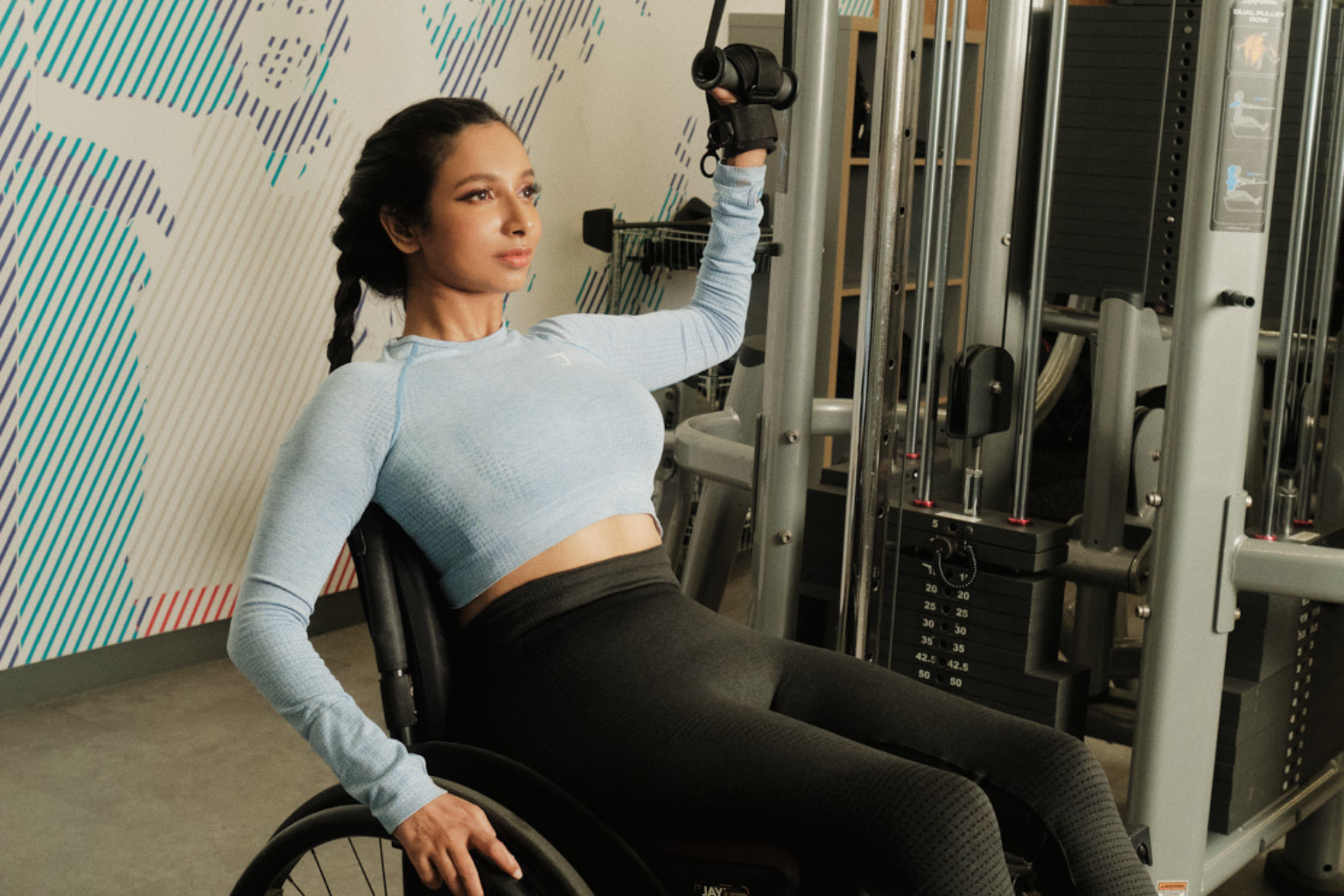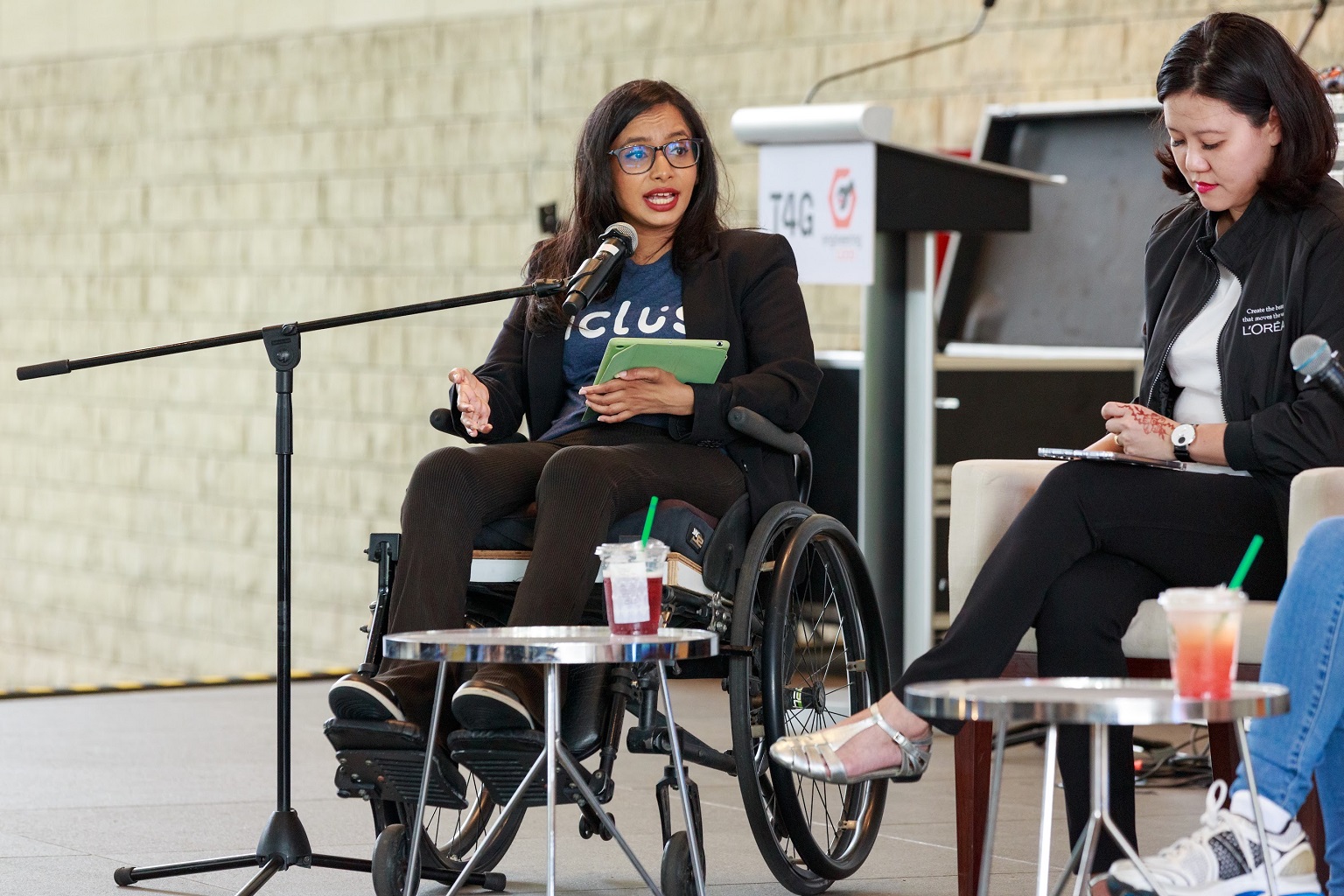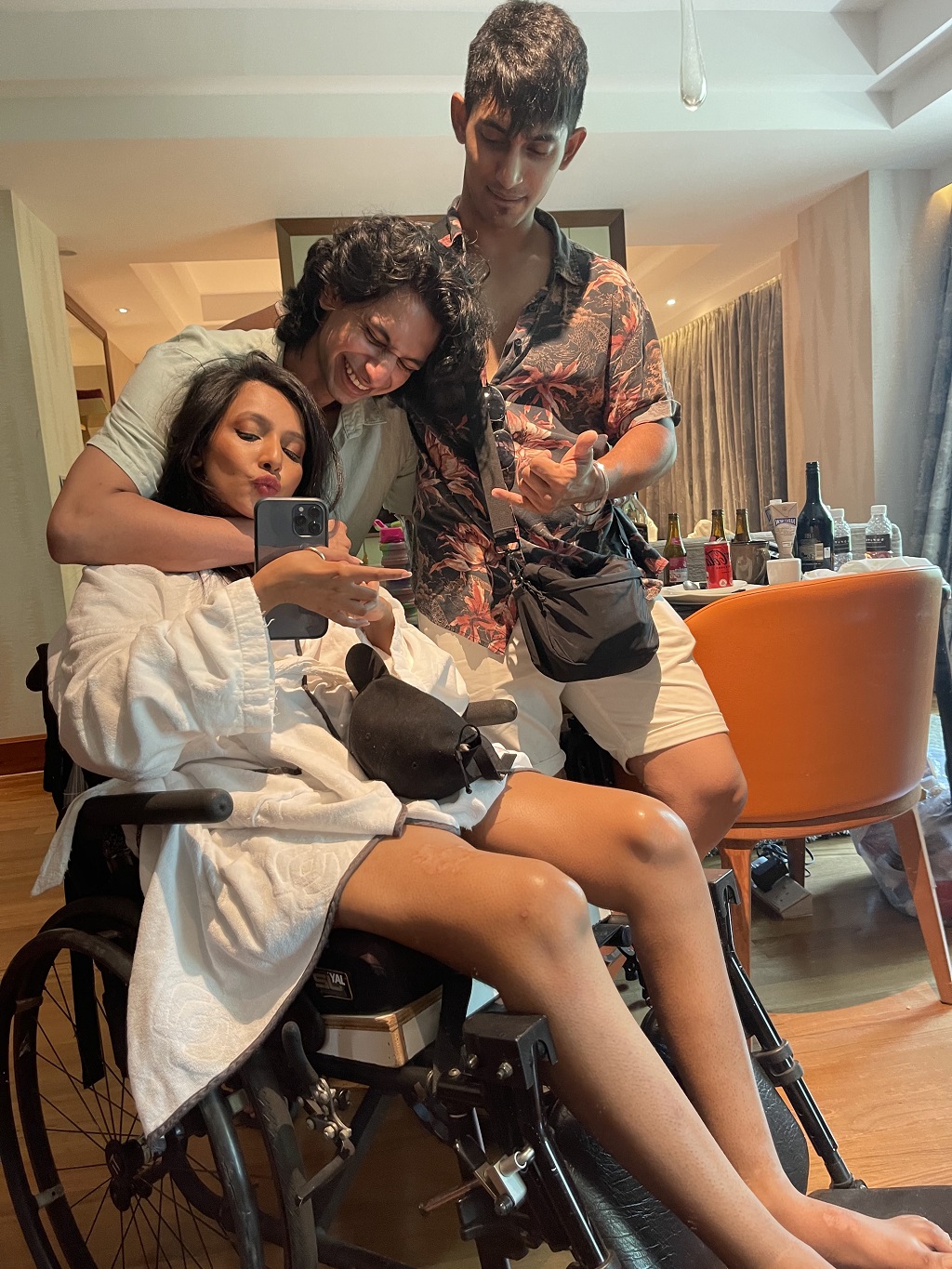BRANDED CONTENT
Breaking down barriers for the disabled: How she’s inspiring a more inclusive society
Through her efforts in diversity-focused employment and social media advocacy, Zoe Zora is challenging stigmas and reshaping perceptions of individuals with disabilities

Through sharing her fitness workouts on social media, Zoe Zora is breaking stigmas about what it’s like to live with a disability.
PHOTO: SPH MEDIA
At 20, a devastating car accident left Ms Fathimah Zohra paralysed from her neck down. Despite facing chronic pain seven years on, which she manages through medication, she is determined to overcome every challenge in her second chance at life.
“Life can change in seconds. But what you make of the new life you have is what matters,” says the 27-year-old, who’s better known as Zoe Zora.
Once an athletic teenager who played soccer and participated in track and field, Zora has learned to thrive in her new reality. It took about one year of intensive rehabilitation and exercise before she regained enough movement in her arms to carry out tasks independently – from doing her own make-up to completing a strength-training workout.
“Exercising gives me the physical and mental strength to live each day to the best of my ability, whether it’s to work or do the things I love.”
And one of the things that she has directed this strength to is to help empower others with disabilities. Two years ago, she joined Inclus, a social enterprise that enables people with disabilities to pursue gainful employment and independence.
“At 25, I felt like I wanted to do more for the community,” she recalls. “I’ve always wanted to contribute to the inclusive employment space and help other individuals with disabilities live sustainable and independent lives.”
Watch this video to find out how Zoe Zora is making society more inclusive:
Finding newfound purpose through inclusive employment
As an inclusive employment recruiter, Zora works closely with employers to promote disability inclusion. For instance, she helps them break away from outdated stereotypes and stigmas about people with disabilities through initiatives such as inclusivity training and workshops.
“The challenge is often changing preconceived notions,” Zora explains. “It takes a lot of education and awareness to shift mindsets.”
Despite the challenges, she has found purpose and deep satisfaction in her work. “Supporting someone through their employment journey and seeing them secure a job is incredibly rewarding. It’s exciting to know I’ve played a part in helping someone achieve what they’ve been striving for.”

Breaking down barriers through representation
Besides her full-time job at Inclus, Zora also raises awareness about living with a disability and the importance of representation in the media via her social media channel @zoraaax6.
With over 32,000 Instagram followers, she shares her fitness workouts and make-up tutorials, and speaks openly about the reality of managing her own disability and mental health. She aims to inspire others while managing her disability and living life to the fullest.
“Social media is where everyone spends their time these days and many are negatively impacted by it,” she says.
“That’s why I try to be real and vulnerable on my page instead of just showing a highlight reel. It’s important to remind people that they’re not alone, especially when it comes to mental health.”
This stems from her own experiences of receiving criticism online, often from people accusing her of faking her disability or seeking attention. In fact, she used to feel so insecure and ashamed of her disability that she stayed off social media for about a year after being an active user for four years.
Today, Zora has even resumed modelling for sports and beauty brands on an adhoc basis – something she used to do in her teens – and speaks at events such as the Enabling Lives Festival.
“Showing up and advocating for disabled bodies was more important to me (than the negative comments),” she says.
Changing society’s perceptions
When Zora became paralysed, it was not just the physical difficulty of going out and about with her activities that she had to cope with. Even now, she has to deal with how strangers tend to stare and feel pity for her, or tell her she would walk again one day.
She says: “While I understand their good intentions, being disabled is the reality of my life and I’ve come to terms with it. Although I do struggle at times, I can also be happy. So don’t feel bad for me because I sit in a wheelchair.
“When you pity someone with a disability, you take away our power. Instead, acknowledge our experiences, and support and encourage us.”

Zora wants society to understand that how someone looks does not always reflect how they feel.
“I might look confident, but I could be battling internal struggles,” she explains. “Many people with mental struggles feel the need to hide them, and that’s why I believe it’s so important to advocate for mental health. It’s okay not to be okay.”
She believes in the power of compassion and understanding, especially when dealing with what she calls “invisible disabilities”.
“Some people don’t know how to share their struggles, so be kind and give them space to be themselves. I share my experiences because I don’t want others to feel alone.”
The encouragement Zora gives to those in her community has given her strength to continue to make a difference for them. Private messages of gratitude and positive feedback from strangers also motivate her to continue to lift the hopes of those who feel helpless and “unseen”.
Lending her support in this journey are her loved ones, especially her parents, five brothers and two sisters, who were her “hands and legs” and helped her build emotional strength to fight against all odds.
“I learnt that you can't always do things alone, and it's okay to get help and accept support from others. There’s so much good in the world, we need to stop focusing only on the bad,” she says.
In partnership with



